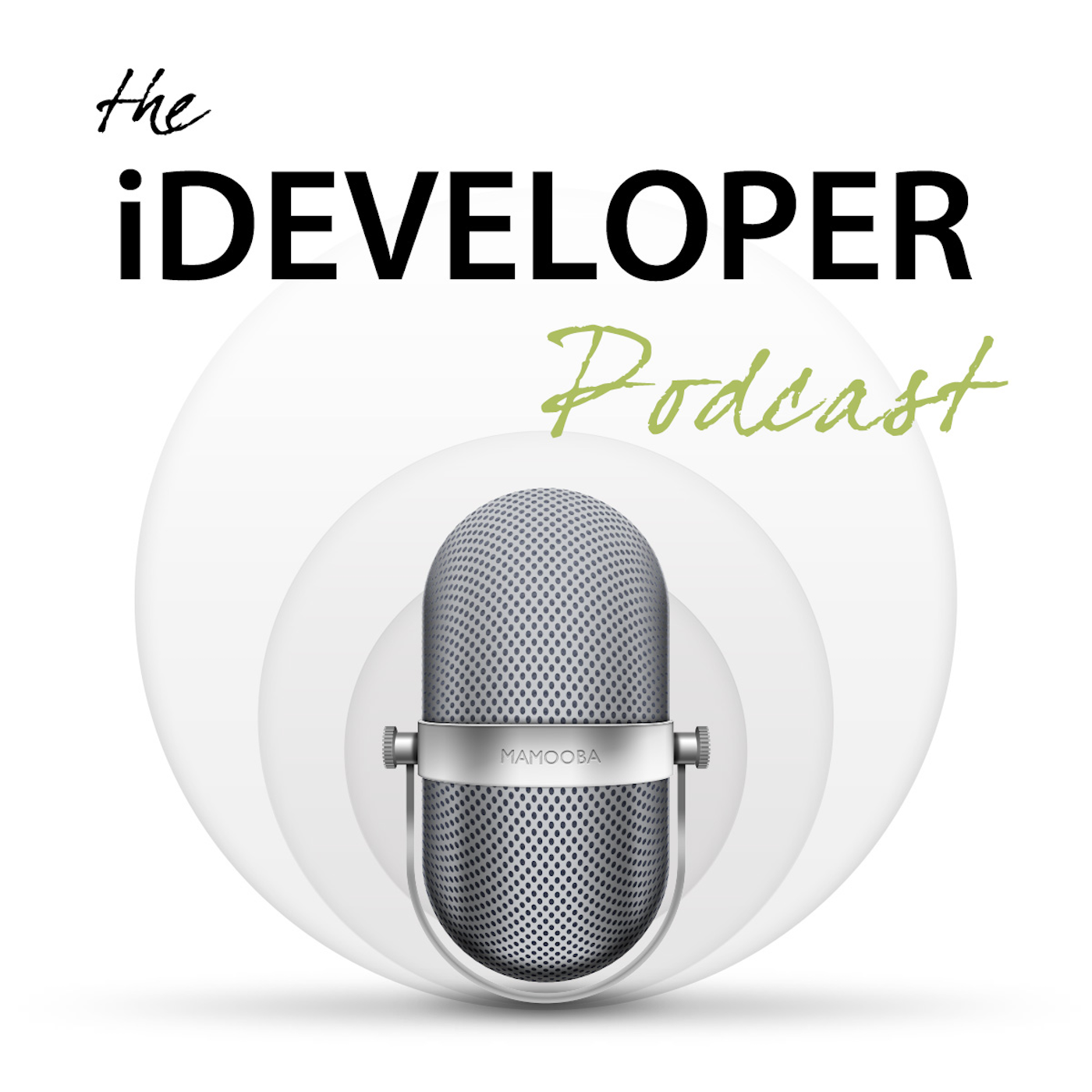
Piano, finally
Piano Finally is a podcast by an old bloke who is learning the piano, finally. I cover the process of learning the piano and music theory as an adult learner. I also review piano books, hardware and other materials from an adult learner's perspective.
Piano, finally
Episode 4 - Why to start
Have you ever felt overwhelmed by a busy schedule yet still found moments of inspiration that reignite your passion? Join me, David Reidy, as I navigate a week filled with debating competitions and school events, all while trying to squeeze in piano practice. Discover how a Year 8 student's original composition at our school's creative showcase provided a much-needed spark in my musical journey. With the holidays just around the corner, I'll share my plans for ramping up my practice time and aiming to catch up with my talented students.
This week, I also delve into the world of metronomes with a comprehensive review of the Boss DB90. After testing various options, I've found this metronome to be an essential companion in my practice routine. Learn about its standout features, including the large backlit LCD display, adjustable tempo, and diverse sound options. I’ll also offer tips on setting up the device, like the importance of using the recommended power supply to avoid noise issues. Tune in to find out why the Boss DB90 has become a key player in my quest to master the piano and how it could benefit your practice sessions too.
You can contact me:
- via email at david@pianofinally.show; this is probably the best option
- the show website, www.pianofinally.show
- Instagram and Threads @pianofinally
- and on YouTube
- all the podcast directories - list
- here's the RSS feed
Some of the links to books and other items mentioned in the podcast are affiliate links for Amazon or other providers. If you use one of these links, a commission may be paid to me at no additional cost to you. Thank you if you use a link.
All reviews of products, websites and services are unpaid, and no sponsorship has been received for any content on this podcast.
G'day everyone. I'm David Reidy, and welcome to Piano. Finally, a podcast by an old bloke who's getting around to learning the piano. Finally, welcome to episode four. I'd like to start out by thanking everyone who has been listening to the podcast. The feedback I have received has been encouraging, so thank you to everyone who has let me know. Over the past week, I've had two piano lessons, but I haven't done a lot of practising. This week, we've had the elimination rounds for the debating competition, which has meant three late nights, though we've been successful and our senior team has made it through to the quarterfinals next week. Holidays are coming up soon, though, so I'll be able to put in some extra time. During the past week, the school held its creative and performing arts showcase. There were some great artworks on show, some interesting drama productions and, of course, plenty of music. One of the highlights for me was one of my Year 8 students performing her original composition on the piano. I still have a long way to go to match her skills. For those not familiar with New South Wales school system, year 8 students are typically 13 or 14.
David Reidy:This week's review is of the metronome I have been using for my practice. We'll leave the discussion of the pros and cons of metronomes for another time, but, needless to say, a metronome is a common accessory when practising any instrument. There are many different types of metronomes available, from mechanical ones to electronic ones and ones that run on a mobile phone. Most digital pianos and keyboards also have one built in, often with many options, including using a drum track rather than a click. I played around with a few, starting with the mechanical one I reviewed in episode one, 1, and with some of the many free applications available on the iPhone. There are many on the Android devices as well. I decided that I wanted a physical metronome because I tried to leave my iPhone out of sight while, practising to reduce distractions and, importantly, it needed to have a really easy way of adjusting the speed. As a beginner, the one thing that is consistent with my playing is that it is slow, but I want to be able to increase the speed gradually until I get up to the speed as written. Being able to increase the tempo by a couple of beats per minute means I can match my current ability and then add just a little more pressure to the
David Reidy:practice
David Reidy:.
David Reidy:The metronome I picked is the Boss DB90 metronome. I bought it from a local music store, but I'll put an Amazon affiliate link in the show notes. The metronome is a grey plastic box with a fold-out kickstand, but I have mine clamped to the table leg next to the piano using a camera clamp. This makes it easily accessible and, as it's out of my line of sight, it's not distracting. If you do want a visual guide, though, it has a large backlit LCD display with a moving indicator that replicates the moving part of a mechanical metronome.
David Reidy:The device has many options. I only use a few of them at the moment, but they're very simple to use. You can set the number of beats in a bar and then use the large yellow dial to set the crotchet quarter note tempo. There is a master volume control for the whole unit and a separate slider for the accent beat. There is also a choice of sounds for the beats, including drums and a voice counting the numbers. Additional volume sliders. Let you add in sounds for quavers and semiquavers, 8th and 16th notes, as well as for triplets.
David Reidy:The DB90 also has lots of different connection ports, allowing it to be used in more complex situations than just practising the piano. The unit can be powered using a 9V battery, though I bought the optional power pack so I can leave it plugged in. One thing to be careful about with the power pack is that it needs to be a low noise power supply. The first one I tried was a generic one that I had around the house, but it introduced a 50Hz buzz to the sound. Replacing it with the recommended Boss power supply removed the buzz completely. I'm very happy with the metronome. I use it regularly because it's so easy to set up and I think it'll last me for many years.
David Reidy:Why, to start? I said right back in the first episode of the podcast that I had for a long time wanted to learn to play the piano, but I really hadn't thought through why. It was just this vague feeling that it would be a nice thing to know. But is it being a nice thing to know enough justification for spending a fair bit of money and hundreds of hours? I suppose it depends on the underlying reason. There are many different reasons an adult might decide to learn the piano and hundreds of hours. I suppose it depends on the underlying reason.
David Reidy:There are many different reasons an adult might decide to learn the piano. Firstly, there are apparently health benefits, especially for older people. Playing the piano means a fair bit of coordinated movement. It's not strenuous, but it's controlled and precise in the same way that yoga or tai chi is, and it has the advantage of being seated for those for whom balance may be a concern. There are many who will say that playing an instrument has cognitive benefits. It gives both your short-term and long-term memory a workout, it makes new neural connections as you use muscles in a different way from the way you have previously, and it keeps your brain busy translating notes on the page into finger movements.
David Reidy:I hesitate to say that learning a complex skill such as piano playing will help to stave off the onset of dementia as much as the literature is at best anecdotal, but it's certainly unlikely to hurt. These aren't the reasons I decided to start, good though they are, as I still work full-time. I get plenty of moving about in my day, and working in rooms full of teenagers is more than enough to keep my brain active. So it took me a while to work out why. Have you ever been somewhere where there just happens to be an idle piano sitting in the room when someone goes over and starts playing it? I've seen it happen during many school camps. A student will start playing, and pretty soon everyone is enjoying the music. It raises the mood and everyone starts feeling a little bit happier. That's what I want to be able to do.
David Reidy:Music is made for sharing, and sharing is good. I suppose there might be some people who learn simply for the technical challenge of mastering a difficult skill. Still, I'm betting that most people think about how rewarding it will be to play for family and friends or even for complete strangers playing just for the joy of sharing some music. Being able to do something harmless but which causes people to feel good is a wonderful skill and what makes all the money and effort worthwhile. There are many YouTube videos in which a person or a group performs music in a public place somewhat unexpectedly and draws a crowd of appreciative onlookers. Some of these appear to be staged, but the happiness of the crowd appears to be genuine. Many councils and businesses put pianos in public places, so spontaneous happiness can happen, and learning the piano lets you be an agent of that happiness. If you do want to give unexpected piano playing a try, the website pianospub lists public pianos all around the world. A search for public pianos near me is also a good way to start. I'm still a long way from being able to bring strangers happiness with my piano playing. I'm still a long way from being able to bring strangers happiness with my piano playing, but it's what I'm aiming for. There are two very nice grand pianos in shopping centres in Sydney and one day I'll give them a try. This week's YouTube suggestion is a perfect example of when too much piano is never enough.
David Reidy:Over the past week, the 2024 Gina Backhour International Piano Competition has been taking place in Salt Lake City. The quarterfinals have just finished and the semifinals and finals will take place in the coming week. It's getting fairly easy to find competition piano performances on YouTube, but often they are just the winners of those competitions. The difference with the Backhour competition is that every performance from the quarterfinals onwards has been recorded and live-streamed to YouTube. I started watching the first live stream and realised that it was going to be over nine hours long, so it's a comprehensive record of the competition. Realised that it was going to be over nine hours long, so it's a comprehensive record of the competition. Luckily, the organisers have also posted the individual performances as individual videos, so it's now much easier to watch a performance in one sitting. Each piano player has played two 40-minute concerts for the quarterfinals, with the 12 semi-finalists going on to 60-minute concerts and the three finalists performing with the Utah Symphony Orchestra in the two final concerts.
David Reidy:Of course, the piano playing is phenomenal and the range of pieces performed is wide and varied. Importantly, the production quality of the recordings is excellent. Both the video and the sound quality are great. They're not amazingly artistic, but they're fine for watching the artist and their technique. If you want tens of hours of video content of high quality piano playing, this collection is for you. One of the things that makes this set of recordings extra special is that a piano playing YouTuber called Ben Lordy has made a video called. I asked 11 pianists how they prepare for an international competition and it is this competition that they're preparing for. That video is a great insight into the preparation for really high end performance, but it also gives you an insight into the young men and women who are competing. It's also a great way to decide who you are going to be barracking for in the competition. I'll put the links to the competition and to Ben's video in the show notes.
David Reidy:Well, that's it for this week. If you'd like to get in contact with me, email is the best way. You'll find me at david at pianofinelyshow and the website at wwwpianofinelyshow. In both cases, piano finally is all one word. The show is also on Facebook, instagram and in threads as Piano Finally. The show notes for this episode are on the website and include a text me link which will let you send me a message. So until the next episode, I hope your piano stays in tune and you enjoy your time at the keys. This week's practice recording is of some short pieces from Dennis Agay's book the Joy of First Year Piano. The first one is Old World Melody and the second one is Spring Morning. Thank you,













